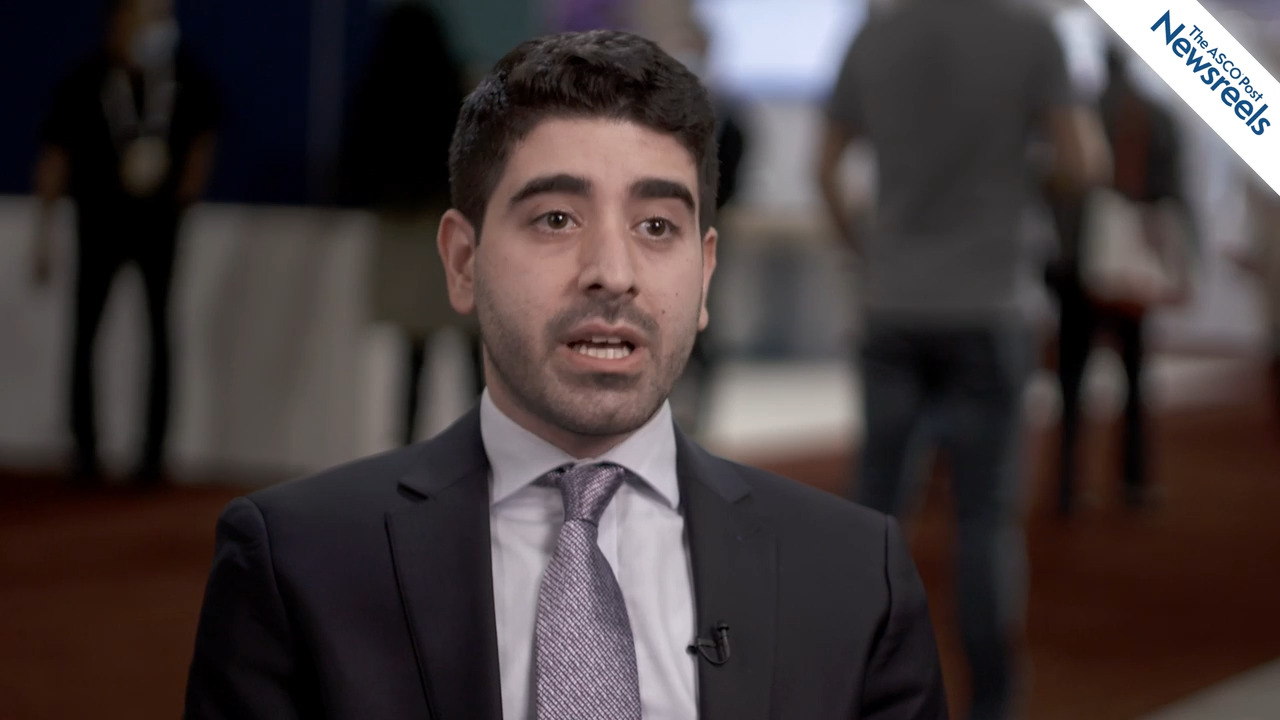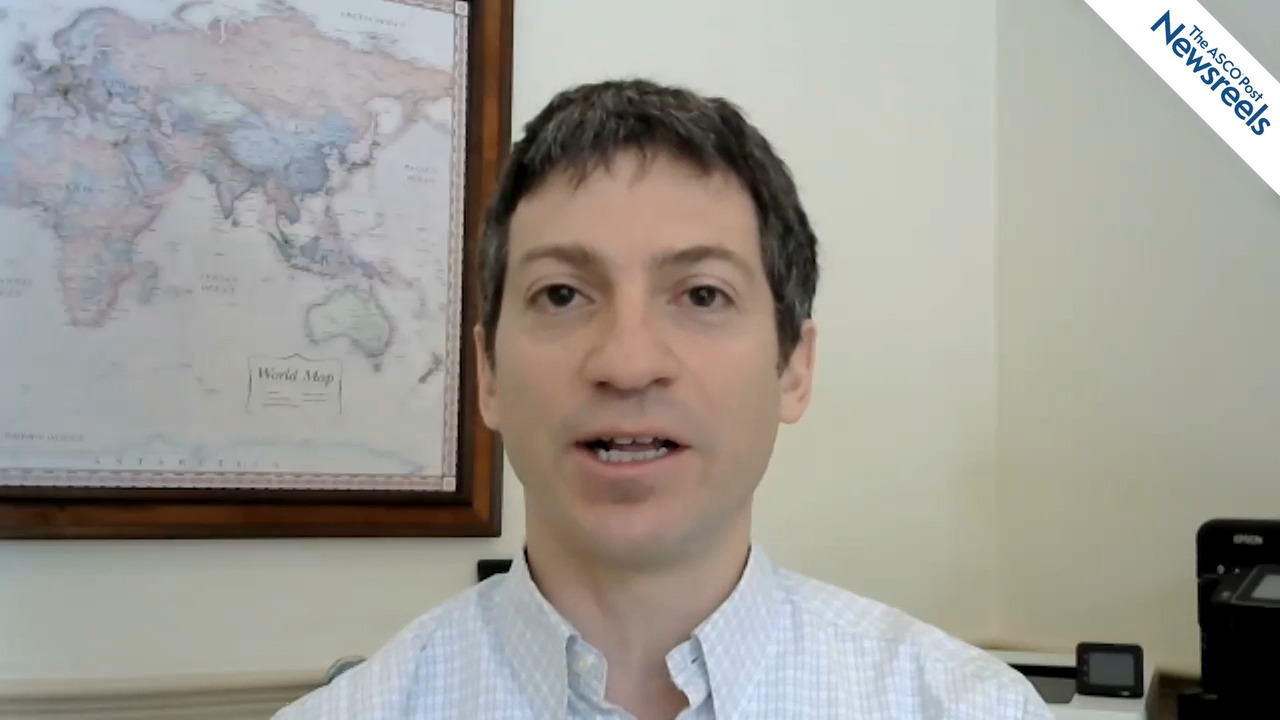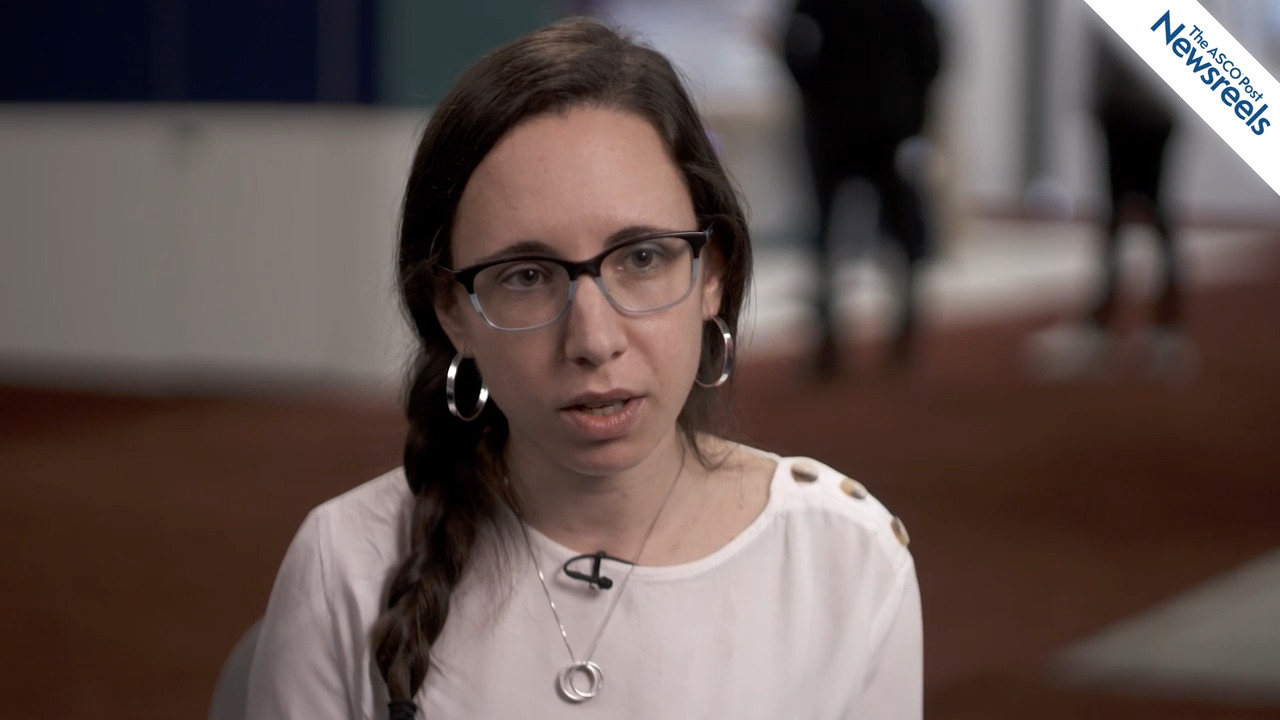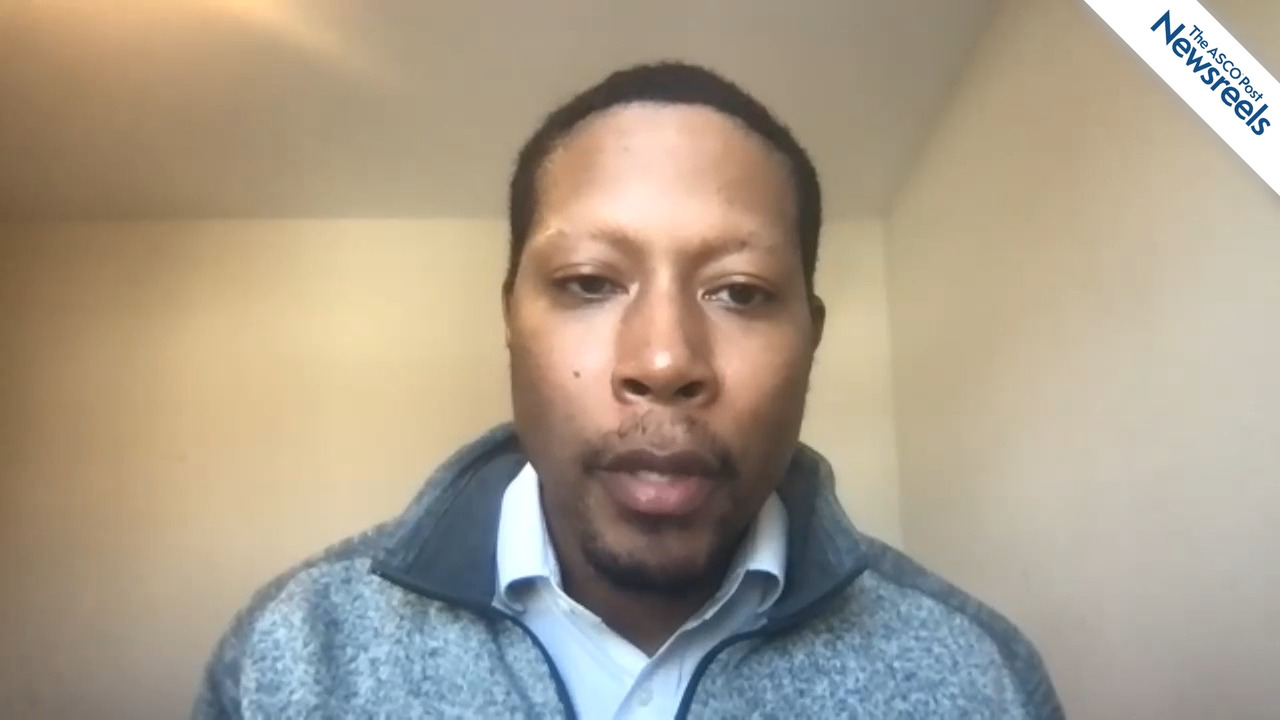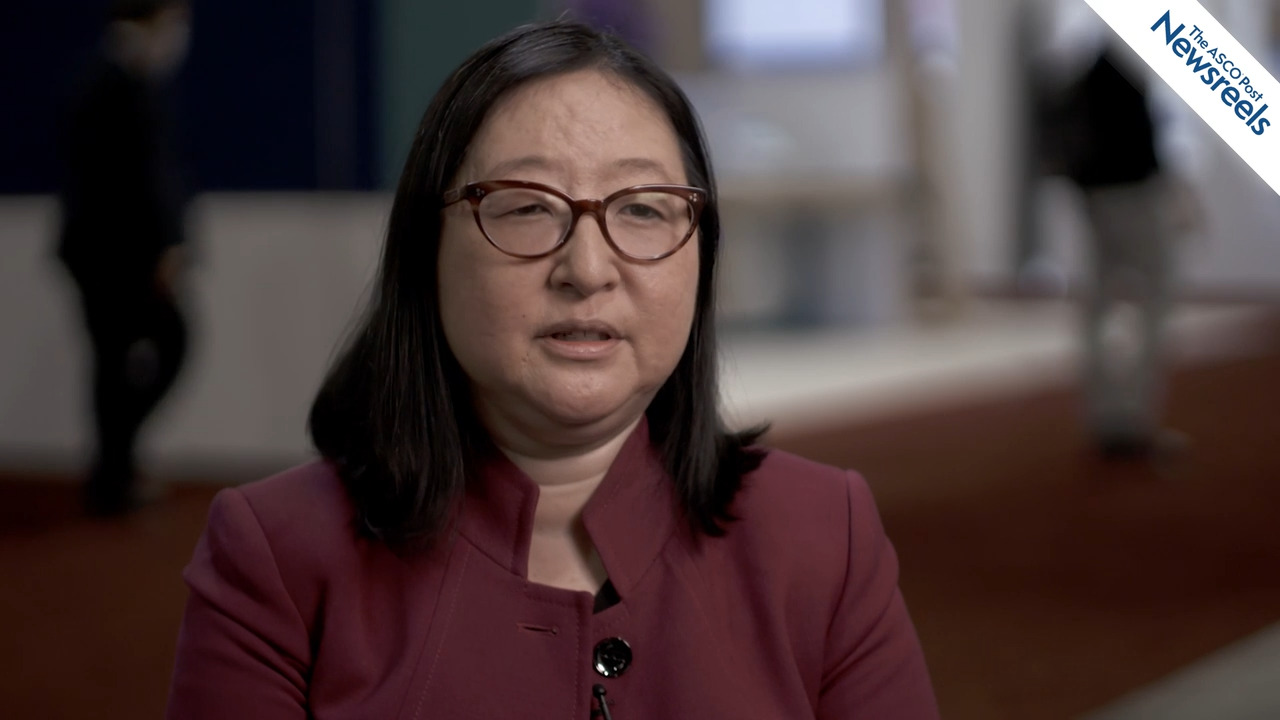Daniel A. Ermann, MD, on DLBCL: Outcomes With Consolidative Radiation Therapy
2021 ASH Annual Meeting & Exposition
Daniel A. Ermann, MD, of the Huntsman Cancer Institute, University of Utah, discusses results from the largest retrospective study on outcomes utilizing radiotherapy in early-stage diffuse large B-cell lymphoma. Adding radiation to front-line multiagent chemotherapy was associated with a survival benefit for all patients with early-stage disease. An overall survival benefit was seen with the addition of radiation to front-line multiagent chemotherapy for patients with nodal involvement and those with specific extranodal involvement in the testes, thyroid, skin and soft tissue, and head and neck (Abstract 49).
The ASCO Post Staff
Tarek H. Mouhieddine, MD, of The Mount Sinai Hospital and The Icahn School of Medicine at Mount Sinai, discusses data that suggest patients with heavily pretreated, predominantly triple-class refractory multiple myeloma who relapse after treatment with bispecific antibodies may still have good outcomes when sequentially treating with other immunologic treatments (Abstract 821).
The ASCO Post Staff
Matthew S. Davids, MD, of Dana-Farber Cancer Institute, discusses phase II results from a multicenter study that showed the efficacy of ibrutinib plus fludarabine, cyclophosphamide, and rituximab in younger, fit patients with chronic lymphocytic leukemia who desire the possibility of a functional cure with time-limited therapy (Abstract 640).
The ASCO Post Staff
Alba Rodriguez-Meira, DPhil, of the University of Oxford, discusses a comprehensive analysis of the genetic, cellular, and molecular landscape of TP53-mediated transformation, providing insights into the evolution of chronic hematologic malignancies toward an aggressive acute leukemia. Because TP53 is the most commonly mutated gene in human cancer, these findings may well be of broad relevance (Abstract 3).
The ASCO Post Staff
Tycel Phillips, MD, of the Rogel Cancer Center, University of Michigan, discusses phase II findings from the CITADEL-204 study of parsaclisib, a next-generation inhibitor of phosphatidylinositol 3-kinase. The agent, used as a monotherapy, appeared to benefit patients with relapsed or refractory marginal zone lymphoma who had a rapid and durable clinical response (Abstract 44).
The ASCO Post Staff
Eunice S. Wang, MD, of Roswell Park Comprehensive Cancer Center, discusses phase III results showing that gilteritinib and azacitidine led to significantly higher composite complete response rates in patients with newly diagnosed FLT3-mutant acute myeloid leukemia who are ineligible for intensive induction chemotherapy. Overall survival was similar to that of azacitidine alone (Abstract 700).
